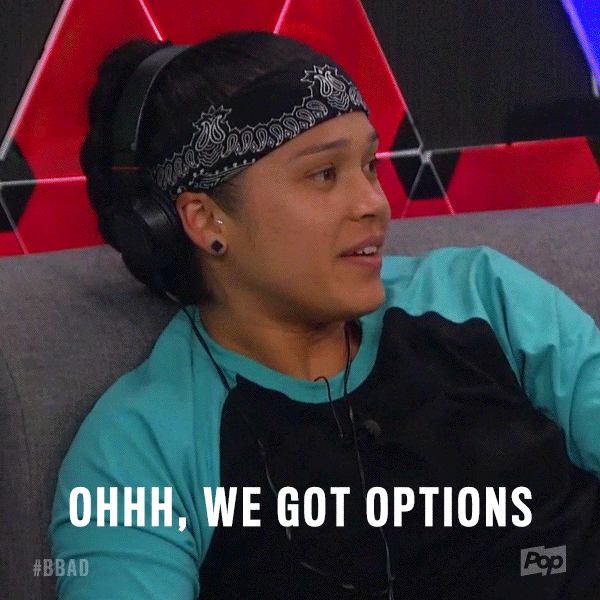This week on In Pursuit of Financial Freedom we have a guest writer: MoneyLemma. I hope you all enjoy this article just as much as I did. This dilemma is one that is prevalent among all real estate investors and well anyone who uses a credit card. Do I pay down debt or do I invest in another property? Read on and let us know in the comments what your choice would be. Make sure to check out MoneyLemma and subscribe to read more of his content.
Until next time,
Amanda
Hello In Pursuit of Financial Freedom readers! This is MoneyLemma, your guest poster this week. MoneyLemma is a free every-other-Sunday newsletter about the overlap between your world and your money. Sometimes the topic is personal finance related (like today or last week’s post on the 1%) and sometimes its general business concepts to help you get smarter about money & finance (here’s an example of a recent post about bananas). No matter the post, it’s always weird and fun. If any of this sounds interesting to you, feel free to subscribe here. Thanks to Amanda for letting me steal the mic today, and she’ll be doing the same on MoneyLemma in a few weeks.
When does it make sense to pay down debt?
Post summary: This post answers the question “if I have some extra money, should I pay down my loans or invest it?” I talk about a few key financial concepts and how those concepts can be applied more broadly.
Let’s say you attend a dog-friendly rave in the basement of a Waffle House hosted by a Norwegian DJ and your Great Dane lifts his leg and soaks the audio equipment in urine. DJ Fjord offers you a fair deal: you can give him $1,000 for new equipment today, or wait a year and pay him back the $1,000 plus 5% interest ($1,050 dollars total). You’ve got $1,000 in your checking account, so if you want you can pay back DJ Fjord today. But should you pay him back now or later? What’s the best financial decision?
Most Americans face this decision every day. The average household has $120,000 in debt, meaning if you add up all the money the household owes to any person or business it would total $120,000. Generally home mortgages are the biggest culprit at an average of $87,000, but there’s much more: student loans, credit card balances, unpaid cable bills, Venmo requests that you’re pretending you didn’t see. It’s all debt!

Debt is unavoidable. You can’t even eat at an Olive Garden without incurring debt: until you pay the check, you owe them money for those endless bread sticks (and you better pay up, I hear they are mafia-connected). You can choose to pay that debt off in cash right after the meal, or you can choose to use your credit card - which means you're paying that debt back later. The question then is not whether to take on debt, but when to pay it back. Most debt has a fixed repayment schedule. Mortgages are monthly payments over many years, credit cards usually give you 30 days before they start dishing out late fees. However, some debt can be paid back prior to those deadlines; early payoffs are referred to as “prepaying debt.” Prepaying debt reduces future interest payments (saves your money) and lowers your overall debt level (a nice feeling). Of course, we rarely have the cash in our bank accounts to prepay a large loan like a home mortgage or student debt. But what about a small piece of loan? Should you prepay a little extra on the mortgage or auto loans when you get some extra cash? Whether you have a giant home mortgage or a small credit card bill, you’re going to come across that question at some point. When you do, you are conceptually in the same position that I laid out in that first paragraph: you owe someone money. You can either pay it back today, or pay them back later with interest. What’s the right financial decision?
You need to understand opportunity cost to make the right decision
The challenge when it comes to money is that you always have options and each option is an investment that has a return. Your best option is called your opportunity cost. I hate that term because it’s not a cost - it’s actually the income of your most lucrative use of funds. It’s really hard to figure out your opportunity cost. Think about all the things you can do with money: franchise a Waffle House, get your gallbladder removed, fly to Venice, invest in your 401k (see Moneylemma’s post on 401ks for more on that). How do you quantify the income of these different investments? Even Antique Roadshow won’t be able to appraise “cherished Venice vacation memories.” Vacations are an investment with a quantifiable cost with an unquantifiable return.
The problem is that you need to quantify your investment options in order to make the right financial decision. I keep it simple and use the S&P 500 (the index of the 500 largest U.S. stocks) for my opportunity cost. Why? It’s easy to invest in and the payoffs are measurable. Investing in the S&P 500 returns, on average, about 10% per year. That’s my opportunity cost: 10%. You may have a better opportunity cost, but it’s up to you to quantify it.
Framing the problem
Here’s the simple answer: paying off debt saves you interest. If the interest saved is greater than the income your opportunity cost generates, then you should pay off the debt. Here’s how I think about the DJ Fjord debt question:
You have two options:
Option A: Pay off the debt today: You can hand over $1,000 cash and that’s the end of it.
Option B: pay off the debt in one year: Let’s say you invest the $1,000 for a year in an S&P index (since that’s our opportunity cost). That means that if you take the $1,000 today and invest it, you’ll have $1,100 in one year (on average). At that point you can pay DJ Fjord $1,050 and then you come out $50 ahead.
If you are being perfectly rational, you would capitalize on DJ Fjord’s financial ineptitude and choose option B. You could put his money to work, earn $50 for yourself, and still pay him back in full. You win, DJ Fjord loses but doesn’t realize it. That’s capitalism.
That’s not the whole story, though.
The unspeakable horror of averages
The complicating factor is that disgusting word, average. Frankly, average doesn’t mean shit. The average grand piano doesn’t kill anyone, but why don’t you have a Muppet drop one on your head and let me know how it works out.
The S&P 500 returns historically average 10%, which means you’ll never get 10%. You may get 15%, you may get 5%, you may even lose 30%. Here’s a distribution of the S&P 500s annual returns for the last 50 years.

If you chose option B (invest in the S&P 500 and pay DJ Fjord back with the proceeds) you’d come out $50 richer on average. But there’s a 40% chance, based on the history of the S&P 500, that you’ll end up with less money by choosing option B.
Risk aversion and the answer to everything
There’s a few decades of financial theory that builds on a few centuries of economics theory that builds on a few millennia of mathematical theory, and it’s all trying to answer the simple question of how resources should be allocated. Feel free to study it all, but I can save you a lot of time and tell you that there is no answer. Nobody can predict the future, and therefore financial outcomes have uncertainty. Uncertainty = risk. In the world of money, risk and return have an inverse relationship. The more risk you take, the higher your return is. In our example with DJ Fjord, you “win” by investing the money, but only on average. In actuality, you may lose. That’s the risk/reward trade-off. Whereas if you hand DJ Fjord $1,000 today you’ll never win, but you’ll also never lose; you’ll always break-even. That’s also the risk/reward trade-off. That is capitalism.
If we were perfectly rational beings we’d always be loading up on risk because the expected payout is higher. If we were perfectly rational beings we also wouldn’t have landed on the moon or invented the deep fryer. Perfectly rational beings don’t care about uncertainty. Humans are anything but rational. (MoneyLemma covered this concept recently: keeping up with the Jones). Perfect rationality, in the economic sense, can be irrational. We evolved to survive, not optimize.
Uncertainty = possible death = scary.
Certainty = boring = alive.
That’s why there’s an inverse relationship between risk and return.
What’s your risk aversion?
Understanding your unique risk aversion is indispensable to any financial decision. We’re all special flowers in the garden of late-stage capitalism, and we should explore ourselves. Surveys like this one can help you figure out your risk aversion, but you should know that risk aversion is fluid: it can change over time or depending on your circumstances.
By the way, risk-aversion isn’t a good or bad thing. Your risk aversion is like your taste in mattresses. You can’t change it even if you want to. You’ve got to embrace it. If you want to pay DJ Fjord back today even though that most likely leaves money on the table, that’s fine. If you prefer to sleep on a waterbed or a hard pine cot like a colonial settler, go for it. The heart wants what it wants. You do you. The only wrong answer is to let someone else make such a personal decision for you.
Even if you’re absurdly risk-averse, that doesn’t mean you’ll never retire or get to shop at Whole Foods. There’s always ways to invest and reach financial goals. There’s an investment option out there for everyone. Here’s what I mean:

Finally, the answer
To recap the initial situation laid out:
We’ve got a decision to make. We have some cash ($1,000) and some debt ($1,000 owed to DJ Fjord).
We boiled the situation down to two options:
Option A, pay back DJ Fjord $1,000 today.
Option B, invest the $1,000 in the S&P 500 and pay back DJ Fjord $1,050 at year-end
We concluded that option A leaves you with $0 and option B leaves you with $50 on average but not always.
We all did some soul-searching on our risk aversion. Some of us will want to take the risk of option B for $50 and play it safe with option A.
People are always questioning whether they are doing the right thing with their money. Paying down existing debt, complex investment products, credit card points and everything else. This simple framework can be a really powerful tool for answering any of those questions. In fact, I make all my financial decisions boiling them into a few options. Once you go through the process a few times you start to develop intuition and confidence in your decision making. To me, the goal of financial independence is to be comfortable and confident that you can remain that way. The best way to do that is just to keep getting smarter about money. If this post has helped with that, feel free to subscribe or share with friends!







Great post! I personally think for any regular individual on any regular basis its best just pay off debt and focus on the clean sheet but there are always exception to the rule and that's what makes some great front page news stories.